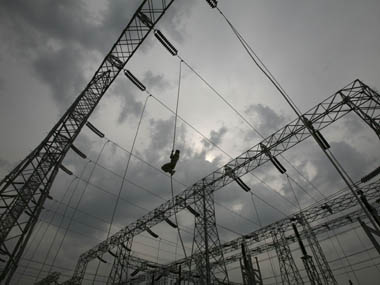New Delhi: Reliance owned discoms BSES Rajdhani and Yamuna told the Supreme Court that if its existing outstanding dues which stand at Rs 14,500 crores were not paid by the government, then the people of the national capital would be saddled with a backlog in tariff dues on a future date.
This statement by the discoms that supply power in the national capital came against the backdrop of the ruling Aam Aadmi Party’s poll promise of 50 percent power subsidy.
Outstanding dues of Rs 14,500 crore are upto financial year 2012-13 and if they are paid, then the discoms would be able to liquidate Rs 7,800 crore that have to pay to power generation and transmission companies and also clear the loan of Rs 6,500 crore raised from banks, the court was told.
“It is detrimental to the consumers as in short term or long term, it would be recovered from the consumers (of power)” senior counsel Kapil Sibal told a bench of Justice J Chelameswar and Justice R. K. Agrawal which is hearing a batch of cross petitions by the Reliance discoms BSES Rajdhani and BSES Yamuna and the Delhi Electricity Regulatory Commission (DERC).
The Reliance discoms have contended that they were not getting a cost-reflective tariff and there was a mismatch between the cost of power purchase and the revenue earned on it.
Contending that recovery and the consumer interest go hand in hand, Sibal, appearing for BSES Rajdhani, told the court that the cost of purchasing power is more than the revenue earned on it.
The firm should not get just its cost but even a reasonable surplus and the regulator has a statutory duty to fix tariff, he said.
Telling the court that initially the cost of power purchase was 80 percent of the tariff but now it has increased to 117 percent, Sibal said that non-payment of outstanding of dues by the government was confiscatory in nature and arbitrary, and pointed to a scenario where negative worth due to mismatch in power purchase and revenue earned would result in closure of operations.
Laying the blame at the doorsteps of political bosses not letting the DERC to discharge its functions independently, Sibal said: “Regulator does not follow its own statutory advice when fixing the tariff. Power sector reforms have not succeeded because sector regulator has not acted independently.”
In response to his submission that the accounts of discom were audited, Justice Agrawal said: “You remember the Satyam case when audits were manipulated.”
At this, Sibal urged the court not to use Satyam example to suspects the audited accounts of others and said: “Don’t question a person whose integrity has not been suspect so far.”
Appearing for BSES Yamuna, senior counsel P Chidambram told the court that the amortisation schedule of its outstanding dues should also factor in the interest cost that discoms were paying to banks for the loans they have raised to run their affairs.
He also asked the court to look into how the current regulatory assets (gap in power purchase and revenue earned on it) was bridged and discoms should get power purchase variables - PPAQ.
The hearing will continue Thursday.


)




)
)
)
)
)
)
)
)